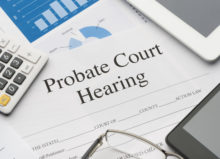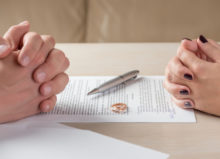Protecting Your Home – Part One: Homestead in Florida

A woman, diagnosed with end-stage cancer, sought to get her affairs in order. She owned her home, and she had children she wanted to provide for after her death. She decided to sell her home to provide some liquidity for her care while she was still living and to provide cash for her children after she passed. Toward that end, she put her house up for sale and moved out, without intending to buy another home. In doing so, the woman lost her homestead status. After she passed away, the home finally sold. Because she lost homestead, creditors took the proceeds of the sale.
This story provides a sad end to a tale, an end that probate attorneys see too often. Homestead in Florida provides certain protections and tax savings for Florida residents. Its purpose is to encourage home ownership, reduce foreclosures, and promote stability. If homestead status exists when the owner passes away, the protection is “impressed on the land.” This means homestead rights can continue even after death.
What are the benefits of homestead status?
Homestead in Florida offers three main benefits: (1) Tax savings on a portion of your property. The exact amount of your tax savings depends on the value of your home and what county you are living in. (2) Protection from forced sale to satisfy creditors. This means that almost no one can force you to sell your house to pay a debt. Exceptions to this rule include mortgages, payment of taxes and assessments on the home, or debts owed for improvement, repair, or labor performed on the home. (3) Your protections pass to your heirs.
What does homestead in Florida protect?
Foremost, homestead protects your home and land. But protection is limited. Within a municipality, you may only claim up to one-half acre of contiguous land. Outside of a municipality, protection extends to one hundred and sixty acres. Fortunately, property value does not limit homestead, unlike other states.
In addition, homestead in Florida protects up to one thousand dollars of personal property.
What restrictions am I under?
One purpose of homestead status is to protect surviving spouses and minor children from losing their homes when the owner passes away. This means that if you die and leave behind a child or a spouse, there are restrictions on devising your homestead. However, if there is no surviving spouse and there are no minor children, there is no constitutional restriction. Just remember, homestead protection only transfers to those who are considered your “heir” under the intestacy statute.
How do I qualify for homestead in Florida?
A “natural person” must own the property. That person must be a permanent resident of Florida, with resident status determined January 1st of each year. The home must be your place of residence. You may only have one homestead Exemption per family – so you or your spouse or your dependents cannot have homestead in another county or another state. You must have proof of ownership, generally a deed in your name.
Application procedures vary from county to county. Visit your local county’s website for more information on how to apply.
What if I change the title to my home?
If you change your title, you need to be careful. It is possible to lose some of your homestead rights if you mortgage, sell, or gift the land to another. You can also lose some of your protections if you transfer title of your property to another. If you sell your home and purchase another one, you may take your homestead protection with you. But it doesn’t automatically transfer; you must file a new application.
Can estate planning affect my homestead status?
Sometimes clients are afraid that putting their home in their Trust will affect their homestead status. After all, you have to change the deed to your home from your name (an actual person) to your Trust (an instrument). Thankfully, if done correctly, placing your home in Trust will not affect your homestead status. It’s important to have your property deeded correctly to your Trust with language preserving your homestead status. It’s also important to have homestead provisions in your Trust. Depending on your county, you may need to provide a copy of the Trust or a notarized Certificate of Trust to your local property appraiser’s office.
Death and Taxes
Benjamin Franklin said, “Nothing in this world is said to be certain, except death and taxes.” The good news is, homestead in Florida provides tax savings for your home and creditor protection from forced sale. It continues past death. It is fiercely protected by the Florida Constitution and by Florida courts.
When you buy a home, think of homestead. When you sell your home, remember to reapply to retain your status. And when you are preparing your estate planning documents, remember your protections can pass to the next generation. Make sure you take steps to preserve and protect what you have. We can help you make sure these steps are done correctly.
























